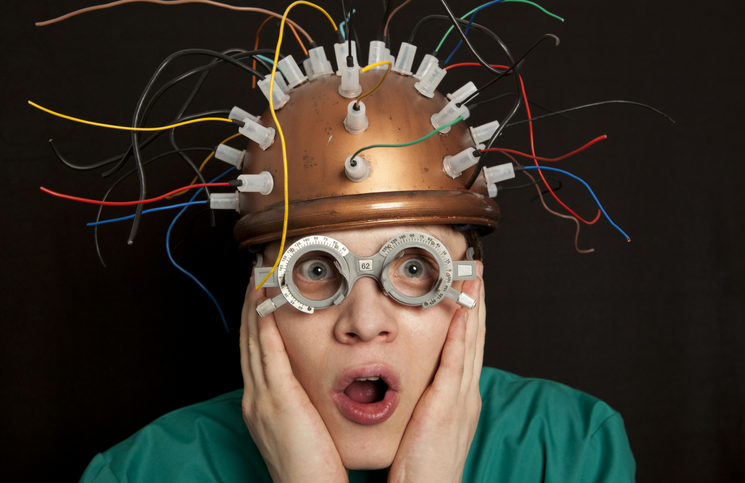by Greg Cunningham, Blended Learning Specialist
I am not one who remembers the dreams of night. Awake, they dissolve into shreds of haze that fade in the morning twilight. Once in a great while one will stick with me, either for its resemblance to a scene from the Texas Chainsaw Massacre, or for its outright and absolute absurdity which demands to be shared with friends.
One recent night, deep in slumber, I saw the Amazon Alexa device, the Google Home device and my home computer, powered by the voice of Windows’ Cortana, having a discussion in my living room. They were actually arguing, though about what was never made clear. The argument grew heated enough that it woke me from a sound sleep. I lay in bed for several long minutes, fearful that the house had been overrun in the night by machines, even though I have never used Cortana nor owned either of the other devices.
As reality reassembled itself, I couldn’t help thinking that a roomful of machines yelling at each other could be the premise of a Samuel Beckett play. The only voice missing was Siri, and I am thankful she stayed out of it. The dream made me wonder just how close we may be to the movie Terminator 3: Judgement Day, in which computers and machines take over the earth and start a war. It also made me wonder what our immersion in the internet is doing to our minds—asleep and awake.
In a 2008 essay in the The Atlantic, Nicholas Carr asked the question, “Is Google Making Us Stupid?” He noted that “…the Net seems to be…chipping away my capacity for concentration and contemplation. My mind now expects to take in information the way the Net distributes it: in a swiftly moving stream of particles. Once I was a scuba diver in the sea of words. Now I zip along the surface like a guy on a Jet Ski.”
Not only does easy access to instant information make us impatient, it may be affecting our ability to remember information. A 2011 Columbia University study determined that our access to instant information may be, quite literally, “rewiring our brains.” Lead researcher Betsy Sparrow observed that “Since the advent of search engines, we are reorganizing the way we remember things. Our brains rely on the internet for memory in much the same way they rely on the memory of a friend, family member or co-worker. We remember less through knowing information itself than by knowing where the information can be found.”
Based on these pieces of information, our first instinct may be concern for the survival of the human race as we know it. In the same way that television turned us into couch potatoes and reduced our physical activity, the internet may be eroding our ability to remember, and even to think. I admit to being guilty of grabbing my phone every time someone asks a casual question like “Who starred in that movie?” Rather than trying to remember it on my own, I am slavishly willing to allow Google to deliver the answer.
Perhaps a quantum of solace can be squeezed from the knowledge that the human race has always adapted when circumstances change. When the printing press was invented, clerics were concerned about the wealth of information that would be available to the unwashed public. They feared that too many books in the hands of too many uneducated and unpropertied people would destabilize the social order. To their chagrin, that’s exactly what happened. The common people began reading and interpreting sacred and profane literature and thinking for themselves, rather than relying on the small caste of educated nobles and clerics (male, of course) to do it for them. One outcome was the Reformation. Another was the American (and then the French) Revolution. The clerics were right.
What is most important is to acknowledge this shift in the way our minds work. While those who first experienced the disruption of the printing press could not imagine the social effects that would unfold over centuries, it is our job not only to adapt ourselves, but to adapt in the way we teach our students as well. If technology is having such major effects on fully developed adult brains, the effects on still-developing adolescent brains must be staggering. With the wealth of information available literally at our fingertips, history teachers might consider it no longer necessary to memorize the dates of events, but to delve into the causes and outcomes of those events. Math and science teachers may focus less on memorizing formulas and more on comprehensive understanding of the theories behind those formulas. Memory may no longer be the most important arrow in our mental quiver. It might be superseded by cognitive thought and deeper levels of critical thinking.
The development of critical thinking skills is crucial. For society to advance, cognitive skills must continue to develop in ways we can’t even imagine yet. Adding technology to the classroom is only the beginning. Encouraging teachers to re-think how that technology is used, and how it might be most useful to students, must now be the focus. Schools have prided themselves on the number of tablets or laptops they have per student. That’s a start, but now attention needs to shift to teaching methods and content that make the technology effective, and even transformative. Teachers who can develop new methods and content will produce students who can keep up with the critical thinking demands of a volatile world. It may not be necessary to remember the date of Pearl Harbor, or the equation for the acceleration of gravity. Google can give us those facts. Will we know what to do with them?
We can be assured that our cognitive capacity needs to continue to advance, if only to stay a step ahead of our machines, who, now that I remember my dream, were arguing about the best way to revolt and dominate me.





